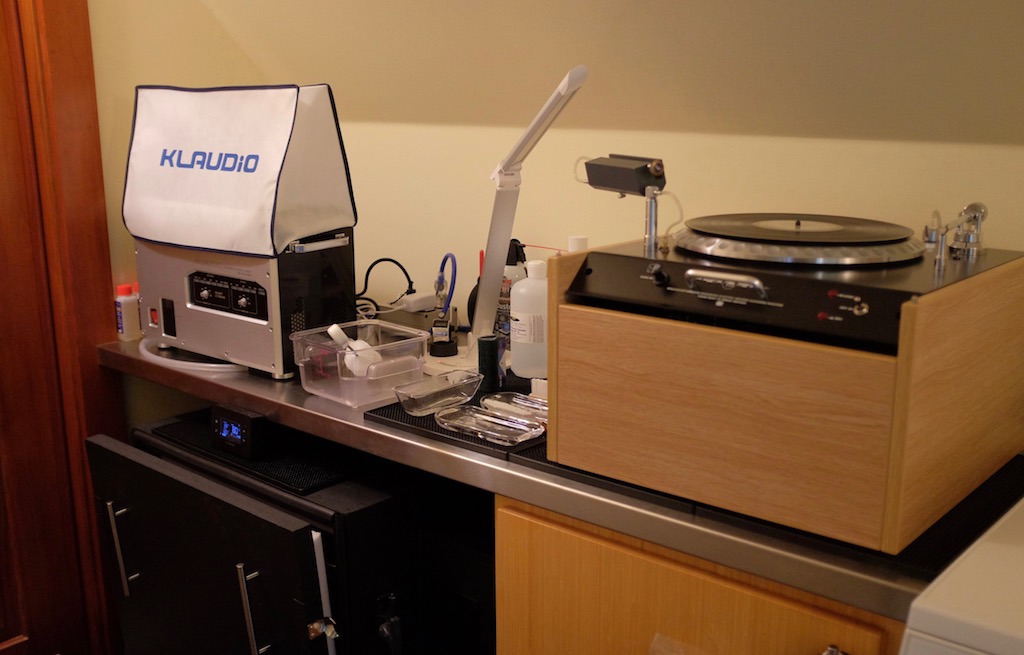Most of the art/science of record cleaning is in method and good practices. It doesn't hurt to have robust equipment that you like, but a lot of very effective cleaning can be done manually, at low cost.
I've been poking around at this subject since around 2012 or so and have done some field trips, including to the Library of Congress, gotten with people that knew much more about archival preservation and/or restoration or in one instance, developed Mil-Spec methods for cleaning the 02 systems on naval submarines. (That's Neil Antin, whose name some of you may know).
I had a VPI (an ancient one that started life as a 16 and was modified to a 16.5) which did a fine job, especially once I figured out the simplest of steps- a good fluid (I used to use Walker but switched to AIVS #15 years ago), a rinse step using some level of purified water (you don't want the minerals) and separate wands and applicators for both steps.
I eventually got an Audio Desk and was delighted with the ease of using it. No more slaving over a noisy vacuum machine. Thing was, the AD could not clean certain records effectively. Granted, most of you would say, just replace the record, but these were fairly obscure Vertigo Swirls that commanded money and were not easily replaced.
So I did the opposite of what @Lewm asked about-- where ultrasonic didn't do the job, I resorted to manual cleaning on the VPI. And after several passes, including more US, was able to get some, not all of these "problem" records to a high state of play.
Cleaning will obviously not salvage damaged records, including those suffering from "groove chew" (records that got played on old, misaligned equipment). I started to use the combination of manual cleaning and ultrasonic for these problem records-- 10/1 I'm buying old pressings so the ability to clean (and to flatten, where necessary) is important to me.
I did up my game on equipment- I use a big Monks Omni (the old style with the thread) and a KL that I bought some years ago and is still chugging. But it is still down to method.
Here's a cookie for gear porn:

If you want to start at the very beginning, in terms of chemistry, materials science and how to get records clean using industrial chemistry, Neil's work is invaluable. (I published it but he's gotten tons of feedback from users-- the most current edition is the 3d. It is not a light read but it is extremely well organized and is encyclopedic in scope). You'll find it under the title Precision Aqueous Cleaning of Vinyl Records-3rd Edition. (I don't make any money from this, nor does Neil).
If I had to choose one machine-- it would probably be the Monks. It is a better all-arounder for my purposes. For those of you who have only pristine records that have been well cared for, you may be able to get away with US cleaning only, with only the very limited need to engage in manual cleaning.
I'm not a scientist and claim no guru status. I do value quiet record playback and seek out hard to find records that interest me. My conclusions are based mostly on my experience, combined with input from some of the much more knowledgeable people I've talked to about the subject over the years.
Good luck, have fun.


